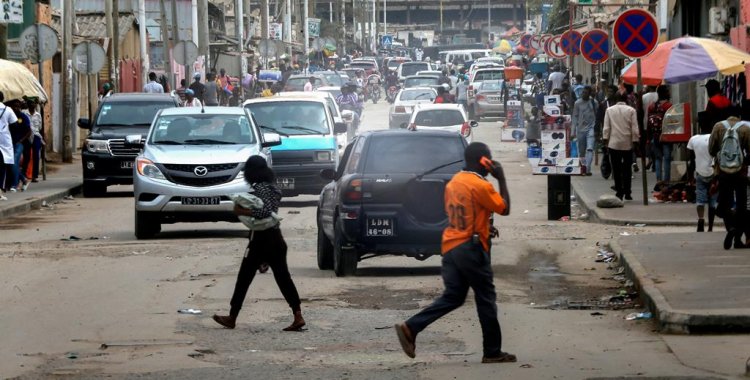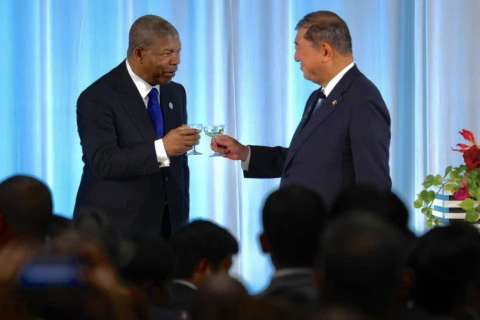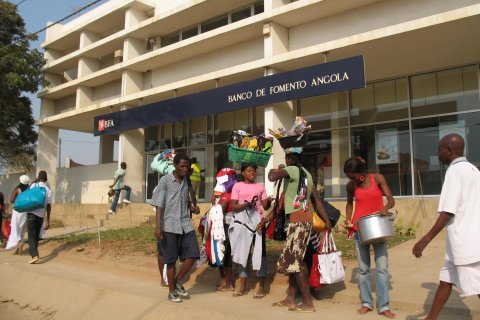"What one feels in power in Luanda is really a very large inversion of values and priorities, because priorities in Angola exist and are identified", he adds, adding that in his first novel he writes about the country that Angola is today.
For Israel Campos, 22 years old, a current 'freelance' journalist for the Voice of America and the BBC, who left the state-owned Rádio Nacional de Angola (RNA) after being targeted by censorship, a country like Angola "which continues to have investments as low levels of education and health, which are crucial sectors, very important to leverage any country, gives clear signs that it has no concern for development".
"It is hard to understand, for example, how Angola still does not have a national reading plan. This is something that scares me a lot", he laments.
Israel Campos believes that development depends on investing in education, rather than "investing in building bridges and roads", for example.
"No. The infrastructures are important, but it is above all also important to bet on the person and Angola is not that. If there are no books, if there is no access to books, if there is no possibility of reading, there is no way to create generations of young people who are critical and who have the ability to think and question", he anticipates.
Graduated in Journalism from the City University of London, Israel Campos is attending a master's degree in Strategic Communication at the Catholic University of Portugal, in Lisbon.
His criticisms also go to the way in which the concentration of the media in the hands of the State subverts the plurality of opinion and conditions freedom of choice.
"I think that today Angola is experiencing a very hostile climate; not that it is something new, not that it did not exist in the past regime, but I think that today the way in which the power instituted in Angola operates makes this idea very clear that there is a cloud that hinders journalistic work in Angola and also a significant reduction of spaces, at the level of the media, so that the opinion that questions, the opinion, that challenges the 'status quo' can be echoed", he considers.
With the concentration of media in the hands of the State, "it is increasingly difficult to have a plural communication that can really stand up to what official communication has always characterized with traditionally public bodies, such as TPA [Public Television of Angola], the RNA and the Jornal de Angola", he says.
"There is a growing alignment", which makes "very clear the intervention that the political force that runs Angola, which is the MPLA, has within these bodies", he adds, expressing his conviction that "it is not news for anyone that there are censorship issues very clearly within these bodies".
"Of course, there is also self-censorship, but there is direct intervention by the State and the interests of the Government in these bodies, which effectively compromises the journalistic work that is done and, consequently, the way in which Angolan public opinion is informed about the country", he adds.
Between Angola, which achieved independence in 1974, after a prolonged anti-colonial struggle, and the current country, the dreams of those who fought for freedom are lost in the distance of time.
"The reality we are witnessing today, with the high levels of everyone leaving Angola because they do not find the necessary conditions to live and with the social, political and economic problems we have today, we are always questioning whether this was what motivated the struggle of those people who wanted independence for our country. Because we do not conform to the current state of affairs. We believe that independence was achieved so that Angola would be a worthy country for Angolans", he stresses.
Israel Campos launches his novel on the 16th, on the sidelines of the literary meeting Correntes D'Escritas 2023, in Póvoa do Varzim, in an event that will be attended by the editor and also Angolan writer Ondjaki.
The launch in Lisbon is scheduled for the 22nd of February, at Livraria Buchholz, in Lisbon, with the presentation of the work by the journalists João de Almeida, Sedrick Carvalho and the architect Maria João Teles Grilo.







